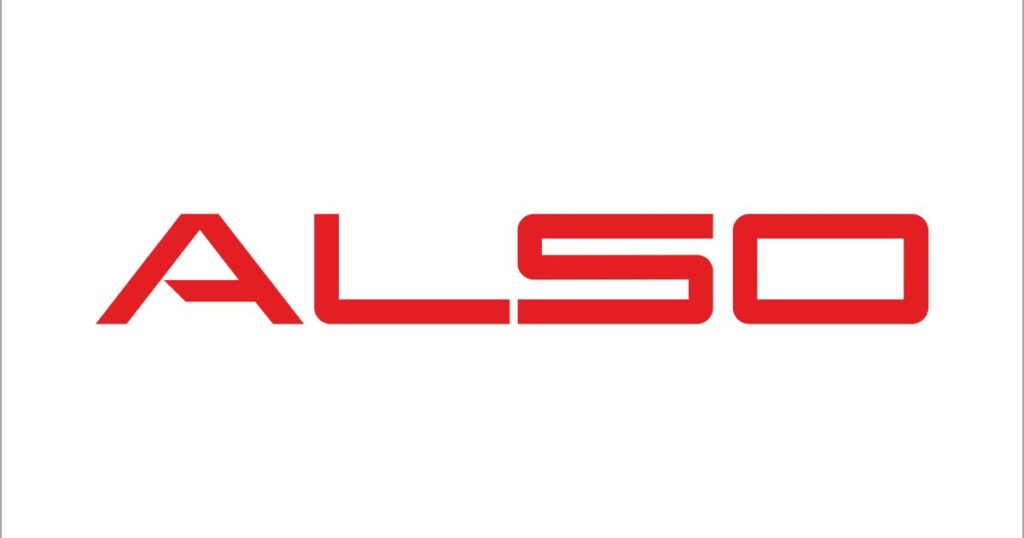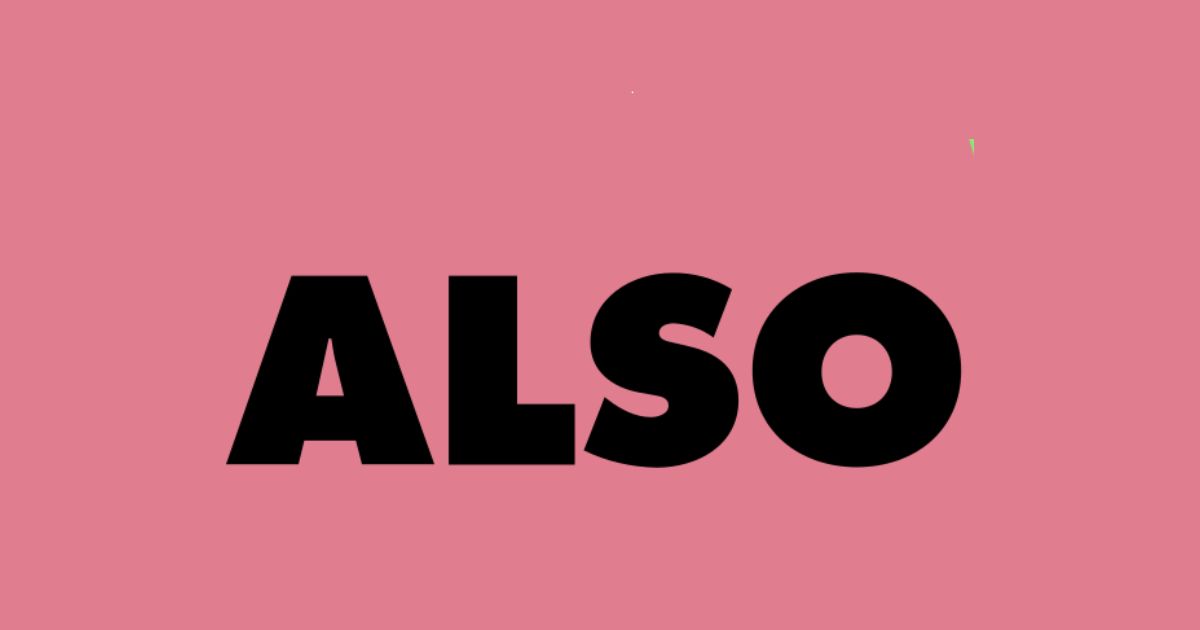We all know also, it’s one of the simplest and most common words we use to add extra information. But here’s the catch: when overused, also can make your writing sound dull and repetitive. Ever found yourself using it again and again, only to realize your sentences lack variety? Don’t worry, there are plenty of exciting alternatives to also that can spice up your writing!
Words like “furthermore,” “moreover,” or “in addition” can elevate your message and make it sound more polished and professional. So why stick with the same old word when you can experiment with new ones? By mixing up your language, your writing becomes more engaging and dynamic. The next time you’re about to say also, give one of these alternatives a try and watch your content come to life.
Other ways to say “Also”

Repeating “also” too often can make your writing sound monotonous. To avoid this, incorporate alternatives like “furthermore,” “moreover,” or “in addition.” These synonyms diversify your vocabulary, making your communication more engaging and articulate. Experimenting with such language enhances the richness and effectiveness of your writing.
Common Alternatives
Using alternatives to “also” can elevate your writing. Words like “furthermore,” “moreover,” and “additionally” are perfect for formal writing, while “plus” and “besides” work well in casual conversations. These alternatives diversify your vocabulary, adding richness and variety to your communication, making it more engaging and impactful.
1. Furthermore
Example: “She excels at managing large teams; furthermore, her problem-solving skills make her an asset during high-pressure situations.”
Meaning: “Furthermore” is a refined alternative to “also” and is used to emphasize additional points that carry substantial weight in the conversation. It adds a sense of depth and reinforces the significance of the statement.
2. Moreover
Example: “He is a talented graphic designer; moreover, his ability to collaborate across departments makes him indispensable to the project.”
Meaning: “Moreover” is another way to express additional information, often making a more powerful and formal contribution to the discussion, enhancing your language proficiency.
3. Additionally
Example: “The restaurant offers a great variety of dishes; additionally, the service is top-notch.”
Meaning: “Additionally” helps introduce supplementary points with a touch of elegance, ensuring your message flows smoothly without being repetitive.
4. Plus
Example: “The event is free to attend; plus, there will be a variety of local food trucks to enjoy.”
Meaning: “Plus” is a casual, straightforward synonym for “also,” making it a perfect choice for less formal contexts, such as casual conversations or social media posts.
5. As well as
Example: “He is fluent in Spanish as well as French, making him highly valuable for international assignments.”
Meaning: “As well as” offers a seamless way to add another element to a list, highlighting both items equally, perfect for diversifying your sentence structure.
6. In addition
Example: “The conference will feature industry leaders; in addition, there will be workshops to enhance learning.”
Meaning: “In addition” is commonly used in both formal writing and academic essays to introduce something supplementary, making it ideal for enhancing your communication.
7. Besides
Example: “We have the latest technology in place; besides, our customer service is exceptional.”
Meaning: “Besides” introduces information that further supports your point, offering a conversational alternative to “also” while avoiding repetitive content.
8. Likewise
Example: “She’s always proactive in meetings. Likewise, she takes the initiative on projects outside of work.”
Meaning: “Likewise” serves as a vibrant synonym for “also” by suggesting that what applies to one person or situation is also true for another, adding a sense of continuity and rhythm to your writing.
9. Not to mention
Example: “The new phone has an excellent camera and screen. Not to mention, it’s incredibly fast.”
Meaning: “Not to mention” is used to emphasize an additional, often surprising, fact that strengthens your original point. It adds a conversational flair to your writing.
Read More: 10 Other Ways to Say “Another Way”
10. What’s more
Example: “The project was completed ahead of schedule; what’s more, it was under budget.”
Meaning: “What’s more” is an excellent choice for informal communication, adding an exciting or surprising detail that enhances your overall message.
11. Then again
Example: “I could go for a jog this afternoon. Then again, I might prefer to relax with a good book.”
Meaning: “Then again” is perfect when introducing a contrasting thought or alternative perspective, adding dynamic flow to your writing or conversation.
12. On top of that
Example: “She completed the project in record time; on top of that, she exceeded all expectations.”
Meaning: “On top of that” offers a casual but effective way to add an extra point, emphasizing the bonus or additional benefit.
Contextual Usage
Choosing the right alternative to “also” depends on the context. In formal writing, “furthermore” or “additionally” works best, while in casual conversations, “plus” or “besides” is more fitting. Understanding when to use these alternatives helps you tailor your communication, ensuring it’s both clear and engaging.
Formal Writing
In formal writing, using alternatives to “also” like “furthermore,” “moreover,” or “in addition” enhances the sophistication of your language. These words emphasize the importance of the added information, making your arguments clearer and more authoritative. They align well with academic essays, research papers, and professional correspondence.
Casual Conversations
For casual conversations, shorter alternatives like “plus,” “besides,” or “and” make your speech sound more natural and relaxed. These phrases are commonly used in everyday dialogues, social media posts, or informal writing. Using these alternatives prevents your communication from sounding stiff, ensuring a conversational and friendly tone throughout.
Inclusive Phrasing
Inclusive phrasing incorporates expressions like “as well as” or “together with” to connect ideas or people. These alternatives are useful when adding information that is meant to be inclusive, emphasizing collaboration or shared aspects. They provide a smoother, more integrated flow, especially in lists or discussions involving multiple subjects.
Variety is Key
Using a variety of alternatives to “also” can significantly improve the flow and engagement of your writing. By experimenting with words like “moreover,” “besides,” or “what’s more,” you add depth and prevent monotony. This variation enhances your language proficiency, making your communication more dynamic and memorable for readers.
Conclusion
In conclusion, also is a handy word, but using it too much can make your writing feel boring and repetitive. It’s important to mix things up. Instead of always relying on also, try alternatives like “furthermore,” “moreover,” or “in addition.” These words can add variety and make your writing sound more interesting.
By using different words, you keep your sentences fresh and engaging. This helps avoid monotony and makes your writing more enjoyable to read. Remember, also has its place, but it’s best to experiment with alternatives. It’s a simple change that can make a big difference in how your writing flows. So, next time you’re tempted to use also, consider switching it up for something new. This will make your writing stand out and feel more lively.
FAQ’s
What are some Other Ways to Say Also?
Some great alternatives to also include furthermore, moreover, in addition, and besides. These can add variety to your writing and prevent repetition.
When should I use Other Ways to Say Also?
Use other ways to say also when you want to sound more formal or when writing academic or professional content. It helps improve your writing style.
How do Other Ways to Say Also improve my writing?
Other ways to say also can make your writing more engaging by adding variety. It reduces repetition and helps maintain the reader’s interest.
Can I use Other Ways to Say Also in casual writing?
Yes, other ways to say also work in casual writing too. Words like “plus” or “besides” can make informal content sound more natural and lively.
Are there any words that work better than also in formal writing?
In formal writing, words like “furthermore” and “in addition” are better than also. They add sophistication and clarity to your arguments or points.

Grammerroot is your trusted source for mastering English grammar and language skills. From simple rules to advanced tips, we help learners build strong foundations through easy-to-understand content. Learn smart, learn right — only at Grammer Root.




